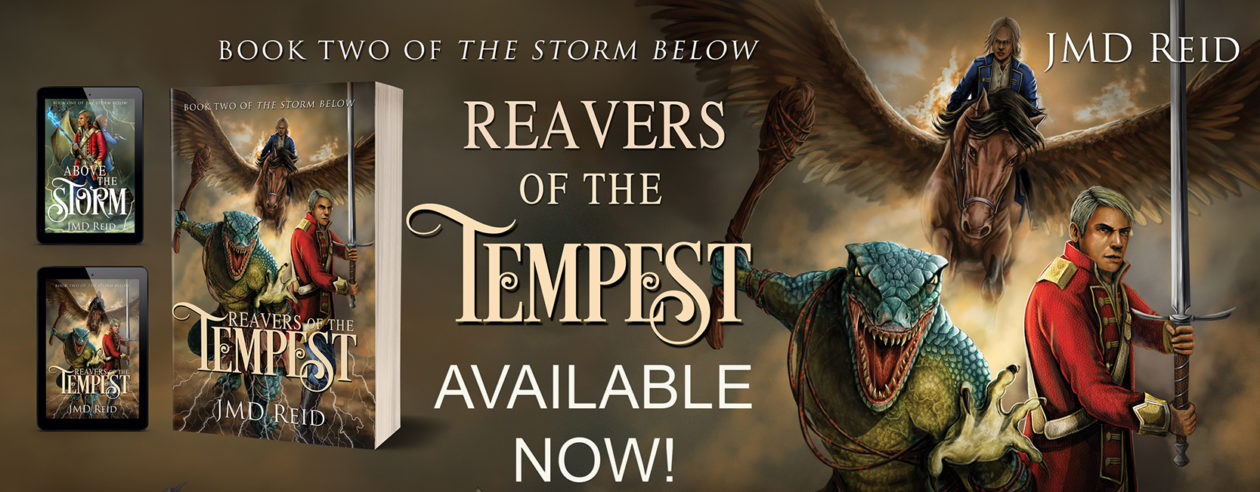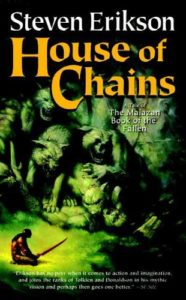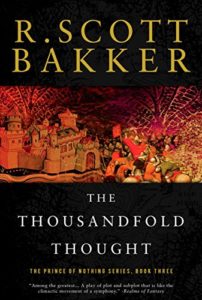Reread of The Aspect-Emperor Series
Book 1: The Judging Eye
by R. Scott Bakker
Prologue
Welcome to the Prologue of my reread. Click here if you missed the Introduction!
When a man possesses the innocence of a child, we call him a fool. When a child possesses the cunning of a man, we call him an abomination. As with love, knowledge has its season.
—AJENCIS, THE THIRD ANALYTIC OF MEN
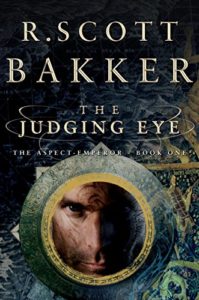 My Thoughts
My Thoughts
Wow, a warning about Kelmomas? He is introduced in this prologue. He’s certainly an abomination.
It’s nice to have Ajencis start us off. After quotes of Achamian’s Compendium of the First Holy War, quotes from The Third Analytic of Men were among the most common. It’s like a welcome sight at the start of this new series. Yes, this is continuing. We’re going to be diving into dark and difficult subjects wrapped up in the guise of a fantasy story.
Knowledge is something you have to gain over time. Having it too early is atypical and not gaining it as you age is disappointing. We do not like things that differ from the norm. We like predictable things. Children may be smart but lack knowledge, and adults may be dumb but possess it. The familiarity is comforting.
The opposite provokes a reaction. So, Kelmomas is the child with too much intellect, so who is the fool?
Samarmas. He might not be an adult, but he’s Dûnyain. The only child of Kellhus that has a normal intellect. And to Kelmomas, that makes him a fool.
Autumn, 19 New Imperial Year (4131 Year-of-the-Tusk), the “Long Side”
A horn pealed long and lonely beneath the forest canopies. A human horn.
For a moment all was quiet. Limbs arched across the imperious heights, and great trunks bullied the hollows beneath. Shorn saplings thatched the intervening spaces. A squirrel screeched warning from the gloom of interlocking branches. Starlings burst into the squinting sky.
They came, flickering across bands of sunlight and shadow.
The Sranc come running wearing armor and shield decorated in human trophies: teeth, skin, fingernails, and more. They smell mannish blood and spill their black seed on the ground. Their scouts have reported what they can smell. “It had been so long since they had glutted their rapacious hunger.” They are eager to kill and rape.
They ran, weeping for joy.
They spot their prey. The Sranc charge across the ground. Just as they are about to fall on the men, the ground collapses beneath them. They fall into pit traps. Some manage to stop in time, shocked by what has happened. They stare “in lust and apprehension” at their prey.
Men.
A hard-bitten handful, running as though by magic across the forest floor. They lunged into the Sranc’s midst, their heavy swords high and pitching. Shields cracked. Mouldered iron was bent and broken. Limbs and heads were thrown on arcs of glittering blood.
The Men roared and bellowed, hammered them to earth, hacked them to twitching ruin.
Later, a lone traveler cries out, “Scalper.” They all turn to face him and the traveler thinks they’re like animals. He threads through the slaughtered Sranc, passing one “white as drowned fish, floating face down in a pool of translucent red.” The traveler notes the ambush was very successful with many Sranc killed. He approaches the scalpers taking their grisly trophies with efficiency. A Galeoth washes the scalps off in a stream, treating them with the same care like they were gold. Even with the lowering of the Hallow Bounty offered by Kellhus, they still were worth money.
All the scalpers watch him even as they pretend to indifference. It was unusual for an outsider to find them in the wilderness. “This work, the work of collecting and counting, was the least manly portion of their trade.” Their shameful secret.
It was also the point.
Nearly eleven years had passed since the Aspect-Emperor had declared his bounty on Sranc scalps, before the last of the Unification Wars had ended. He placed the bounty on Sranc because of their vast numbers. He placed the bounty on scalps because their hairlessness made them distinctive to Sranc. Men such as these, the traveller supposed, would be far happier poaching something less inclined to kill back—like women and children.
So began the Scalping Years. Over that time, countless thousands had trudged into the northern wilderness, expedition after expedition, come to make their fortune as Scalpoi. Most died in a matter of weeks. But those who learned, who were wily and every bit as ruthless as their foe, prospered.
And some—a few—became legendary.
The traveler has come looking for one such legend. He studies the man who is dressed in the “traditional costume of his caste and race” only his armor and clothing ripped and rusted, soiled. The man is an Ainoni known as Ironsoul. The man the traveler judged to be him says it and the traveler bows out of respect to a Veteran of the First Holy War. It’s a crime not to “venerate a survivor” of that conflict.
“How did you find us?” the man asked in his native tongue. From the cadence of his voice, it was obvious that he despised speaking, that he was as jealous of his voice as he was of his women or his blood.
The traveller did not care. Men prized what they would
“We find everyone.”
A barely perceptible nod. “What do you want?”
The Ainoni glanced back towards his cowled companion. No words were exchanged, only an inscrutable look.
Autumn, 19 New Imperial Year (4131 Year-of-the-Tusk), the “Long Side”
Ever do Men seek to hide what is base and mean in their natures. This is why they talked of wolves or lions or even dragons when they likened themselves to animals. But it was the lowly beetle, the young boy decided, who they must resembled. Belly to the ground. Back hunched against the world. Eyes blind to everything save the small circle before them.
The boy, Anasûrimbor Kelmomas, follows the beetle scurrying across the floor in the wake of his Whelming. Prayers drift through the temple’s columns as he is curious to where the beetle is going. The beetle leaves a trail in the dust and obliterates it as the beetle leads to the statue of Ajokli, the Four-Horned Brother.
“The Thief?”
Kelmomas is not impressed. Ajokli’s godhouse is a poor one compared to the other gods, his brothers and sisters. It’s a statue carved from black diorite to look like a fat man crouching over to chamber pot. He has no jewels or precious metals. Kelmomas finds the expression inhuman. “Grinning like a monkey. Snarling like a dog. Staring like a dew-eyed virgin.”
It [the statue] also watched the beetle as it scurried into its gloomy bower.
Kelmomas follows the beetle and mocks the statue by mimicking its posture by crouching over the beetle. Then he grabbed the insect. “It writhed like a little automaton beneath his fingertip.” He anticipates killing it, knowing he could do it easily and enjoying his power. He rips off two legs and tells the statue to watch. He sets the beetle back down. Missing two legs, it moves in a circle.
“See?” he exclaimed to Ajokli. They laughed together, child and idol, loud enough to blot out the chorus of chanting voices.
“They’re all like that,” he explained. “All you have to do is pinch.”
“Pinch what, Kelmomas?” a rich, feminine voice asked from behind him. Mother.
Another boy would have been startled, even ashamed, to be surprised by his mother after doing such a thing, but not Kelmomas. Despite the obscuring pillars and voices, he had known where she was all along, following her prim footsteps (though he knew not how) in a corner of his soul.
He asks if they’re done as he whirls to see his mother, the Empress Esmenet. He finds her the “world’s most beautiful thing” despite her makeup and jewelry. She is finished and rolls her eyes, signaling she’d rather dote on him then do boring things. Kelmomas knows she does things to maintain appearances, just not nearly as good as he did. He asks her if she prefers his company even though he already knows the answer. He doesn’t let her know he knows because “it troubled her when he read aloud the movement of her soul.” She smiles and scoops him up in her arms, adjusting his hair while he savors her embrace. He thinks, “Never was there such a sanctuary.”
Mommy…
She leads him away and he is satisfied the beetle still stalks in circles. Then he hears the sounds of a crowd and he grows nervous, not wanting to leave. She asked him what is wrong, but he lies and says anything. She licks her fingers and attends to his messy hair like any mother would.
“It’s proper that you be anxious,” she said, distracted by her ministrations. She looked him square in the eye, and he stared into the pith of her, past the paint and skin, past the sheath of interlocking muscles, down to the radiant truth of her love.
She would die for you, the secret voice—the voice that had been within always—whispered.
“Your father,” she continued, “says that we need fear only when we lose our fear.” She ran her hand from his temple to his chin. “When we become too accustomed to power and luxury.”
Father was forever saying things.
He sneers inside while faking being an adorable kid. The secret voice tells him to both hate his father but fear him. Kelmomas “must never forget that the Strength burned brightest in Father.” Meanwhile, Esmenet is happy to have such a good son and hugs him. Holding her hand, he allows her to lead him out of the Allosium. They exit the temple onto the Scuäri Campus, the plaza before all the temples. Eothic Guardsmen protect them. He can see the whole vista of the Home City. It’s massive.
On and on it went, the vast and mottled vista of the Home City, the great capital of all the Three Seas. For his entire life it had been encircled him, hedged him its teeming intricacies. And for his entire life it had frightened him, so much so that he often refused to look when Samarmas, his idiot twin, pointed to something unnoticed in its nebulous weave.
But today it seemed the only safe thing.
“Look!” his mother cried through the roar. “Look, Kel!”
He stares at the thousands crowding the square, pilgrims and locals, “churning like floodwaters about the base of the Xatantian Arch.” They all reach for them while his mother tells him they are all here to witness his divinity. He fakes the “bewildered gratitude” she expects; he feels only disgust. “Only fools, he decided, travelled in circles.” He wants to show Ajokli this truth.
People were bugs.
It feels like a long time that Kelmomas and his mother stand in their “proscribed places.” He focus on flying birds and sunlight on rooftops. He wants to ask his mother for a model of the city so he can burn it. Soon Thopsis, Master of Protocol, arrives and all the Imperial Apparati on the steps turn to face Kelmomas and his mother. He studies their faces, seeing all their emotions despite blank spaces. Ngrau, Xerius’s old seneschal, still holds that position. Phinersa is the Holy Master of Spies, and Imhailas is the Exalt-Captain of the Eothic Guard and Esmenet’s sometimes lover. Werjau is the Prime Nascenti and leads the Ministrate while Vem-Mithriti is the Grandmaster of the Imperial Saik and Vizier-in-Proxy. There are sixty-seven in all in descending order of importance to witness Kelmomas’s Whelming. He’s the youngest son of Kellhus. Only his Uncle Maithanet, the Shriah, is unreadable. He doesn’t like Maithanet’s scrutiny.
He suspects, the secret voice whispered.
Suspects what?
That you are make-believe.
The cheers die as the horns sound. Then, at Thopsis’s shout, “the whole world seemed to kneel.” The citizens of the New Empire prostrate themselves save for Maithanet who only kneels to Kellhus. Kelmomas is dazzled by the sun reflecting off small tusks decorating his vestments and loos away. As they descended, he can’t help but laugh at how absurd the Exalt-Ministers look “grovelling in the costumes of kings.”
“They honour you, Kel,” his mother said. “Why would you laugh at them?”
Had he meant to laugh? Sometimes it was hard to keep count.
“Sorry,” he said with a glum sigh. Sorry. It was one of the many words that confused him, but it never failed to spark compassion in his mother’s look.
They walk through the square to the Andiamine Heights under the armed escort of the hallowed Hundred Pillars. The walk makes Kelmomas nervous despite the familiarity of being escorted by towering, armed men. He can smell the unwashed masses, a nauseating reek while they chanted “Bless-bless-bless,” over and over. He stars at the “landscape of kneelers.” A beggar weeps while a young girl watches when she shouldn’t. It stretches forever.
He walked across a living ground.
And then he was among them, in them, watching his own steps, little more than a jewelled shadow behind a screen of merciless, chainarmoured men. A name. A rumour and a hope. A god-child, suckled at the breast of Empire, anointed by the palm of Fate. A son of the Aspect-Emperor.
They did not know him, he realized. They saw, they worshipped, they trusted what they could not fathom.
No one knows you, the secret voice said.
No one knows anyone.
He glances at her mother and sees she’s worrying over Mimara. He asks if she is thinking about Esmenet’s first daughter, “the one she loved with the most desperation—and hated.” Kelmomas drove Mimara away at the secret voices urging while the voice. His mother lies and says she’s worrying for his father and Kellhus. Seeing she still worried for Mimara, Kelmomas isn’t happy that all his manipulations haven’t worked. The secret voice wonders if they should have killed Mimara. He then asks when Kellhus will return.
He knew the answer at least as well as she did, but at some level he understood that as much as mothers love their sons, they loved being mothers as well—and being a mother meant answering childish questions. They traveled several yards before she replied, passing through a fog of please and whispers. Kelmomas found himself comparing her to the countless cameos he had seen depicting her in her youth—back in the days of the First Holy War. Her hips were wider, perhaps, and her skin not so smooth beneath the veneer of white paint, but her beauty was legendary still. The seven-year-old could scarce imagine anyone more beautiful.
She says he won’t return until the Great Ordeal is over. That gives Kelmomas such joy. He wants his father to die and this brings his “first true smile of the day.” As they continue walking, someone yells out cursed. A madman with a knife rushes to attack Esmenet. He watches “battling shadows” and a word pops into his mind.
Assassins.
My Thoughts
A human horn sounds. The fact Bakker has to point this out should let us know, we are in a place humans shouldn’t be. We start with the Sranc. They dominate this series. They are the great concern of the Holy War, which only grows worse as they start marching and began fighting their way across the Sranc to the north. In this wake travels Achamian and his band. It’s fitting that we start with these bestial creatures, reminding the reader what they are. How they wear trophies of human flesh. How they get so excited by the scent of human blood that they ejaculate their black seed. They are pure hunger.
The “traveler” sees the scalpers as nothing more than animals. We see how fighting Sranc dehumanizes men. The Great Ordeal is marching out to fight these same creatures. Bakker is laying the groundwork of what being around Sranc does to humans. How it’s going to twist them into beasts like Ironsoul and his men.
Scalpers must be seen as the most dangerous and deadly men. The ones with the balls to go off into the wilderness and fight the monsters then come back with their trophies. It’s as masculine as you can get, and yet to earn their money, they have to do something almost domestic: washing and counting and organizing.
Trust Bakker to slip in that comment about scalpers needing to bring back something purely Sranc else they’d just be murderers. Most follow the path of least resistance, and those who do this will quickly have the innocence beat out of them. Even if they started off killing Sranc, soon they’d realize easier ways to make money after the dehumanizing work.
Well, Bakker’s really building up Ironsoul and his men. As we’ll see, they earn it. Especially Ironsoul.
Ironsoul is a man cast in the vein of Cnaiür. As brutal and deadly. He’s Ainoni, which in the first series was the most effete of all the races. The most urbane and decadent. Though they had their soldiers who fought in battle with skill, but they were always looked down as being lesser men by the others. Yet here we have Ironsoul, dressed like an Ainoni down to having tattoos mimicking makeup, purple lips, and eyeliner. Still, there’s no denying this man could rip you apart. It’s a nice subversion of expectations of Ainoni, showing that they’re not monoliths but a diverse people.
So who is this Traveler his “cowled companion.” The man is someone who revers the laws of Kellhus Empire by showing defense to a Veteran of the First Holy War. He is someone on a mission, searching these men out. He is delivering them this cowled companion. This is Cleric. We see no mention of Cleric in this passage. No nonman preaching. This is how he was delivered to them. We see the Cleric agree with a silent nod
We later learn Cleric is the last Nonman King Nil’giccas who is supposed to be in their last city of Ishterebinth. Kellhus sends his daughter, adopted son, and Sorweel there ostensibly to negotiate with Nil’giccas. But Kellhus already knew he wasn’t there. Clearly, he has met with Nil’giccas and made an agreement with him. He delivers him to the Scalpers to act as his elju, his book, because the nonman king is an Erratic.
Kellhus appears to have placed these scalpers and Nil’giccas into the path of Achamian. He is arranging protection and the skills for Achamian to make his journey, probably because Kellhus anticipates Mimara will join him. He is protecting those Esmenet loves. Mimara, Achamian, Kelmomas, and Samarmas (well, Kellhus would have if he knew about Kelmomas activities).
I do not think Kellhus cares if Achamian learns anything or not. Maybe he had different plans for Achamian and Mimara after the Consult’s defeat, but Kellhus’s plan failed in the final moments and so we’ll probably never know.
Well, we see Kelmomas’s opinion of people. It has the clinical detachment of a Dûnyain but possesses a spite to it. A delusion of grandeur a sane Dûnyain wouldn’t have. Right there in the opening paragraph about him. He destroys the beetle’s trail, obliterating its history, the evidence of its existence.
It’s fitting knowing where he ends up. Many thought he would be the Narindar (avatar/agent) of Ajokli because of this scene, but Kelmomas is acting as an equal, not a servant, to what he calls “the Thief.” The humans have scurried to the gods to save them. The ones who steal their souls.
“It writhed like a little automaton beneath his fingertip.” What’s an automaton but a slave to what comes before unable to deviate from the cause that set it in motion. He proves it by ripping off the beetles two legs then shares in the joke with the god. Kelmomas is Ajokli’s equal. Or will be.
Kelmomas tracking his mother is something we’ve seen from Kellhus. Of course, Kellhus has gone past that, but it’s showing us that Kelmomas going to have some Dûnyain level of skills and manipulation as we see his interactions with Esmenet. But he’s also untrained. He does this all instinctual.
However, while he’s Dûnyain, he clearly has an emotional attachment to Esmenet. A jealous and obsessive love, as we’ll see. It’s very childish, the only thing childish about him. She’s his favorite toy but also the only place he feels safe. Interesting that he feels fear. He gets scared by the sounds of the crowd though he refuses to admit it and lets himself be mothered by Esmenet.
Kelmomas is scared by the city because it’s too much for him. He can’t possibly take it all in and pay attention to it. Take that line “something unnoticed in its nebulous weave.” Kelmomas needs to control everything, especially his mother. In the palace, he can do it. When Kellhus is absent, he has free rein, or so he thinks. He can’t control a city.
But today, everyone in the city is cheering for him. All the beetles have come to worship him.
Werjau… I remember you. Did that slave plot in Thousandfold Thoughts go anywhere? I’m going to be paying attention to him in this book because I can’t for the life of me remember what he does in this book and the next. Is he still working against Esmenet?
So Kelmomas has a secret voice. This is another indication that he’s a broken Dûnyain like many of his siblings. We later see he’s not sure if he meant to laugh or not. He can’t maintain the facade as well as others.
We have a Dûnyain who is jealously in love with his mother and has the impulse control of a seven-year-old. We can see him struggling to maintain his facade at times. He does acts that could get him caught, like mutilating the insect. He has a god compact. As we see going forward, he’s not as smart as he thinks when dealing with other half-Dûnyain.
This chapter is full of so much foreshadowing. We have glimpses of the Holy War’s fate with the scalpers followed by the introduction of one of the biggest sources of chaos in this series. Kelmomas has the idea of assassins implanted in his head, and that is a big thing he does in this book. He causes so many problems for his mother trying to isolate her. We have the mystery of Cleric and what deal he made with Kellhus. And we learn that the inciting incident for Achamian’s storyline, Mimara’s arrival, was orchestrated by Kelmomas.
A great start to this series.
If you want to read on to Chapter One, click here!
Hi, if you like my Analysis, you can connect with me on Facebook and Twitter, and you can pre-order my first fantasy novel, Above the Storm, from Amazon or purchase my short story collection! Also, please leave any comments or criticisms below! They help keep me motivated!
To save the world, Ary must die!
Ary, a young man scarred by his past, is thrust into the dangers of the military. But he carries a deadly secret: the dark goddess’s touch stains his soul.
Her taint threatens to destroy all he loves.
He must hide the truth from the other marines and the woman he loves. Can Ary survive the dangers of service and the zealous assassin plotting his death?
Are you ready for the action, danger, romance, and betrayal exploding across the skies Above the Storm!
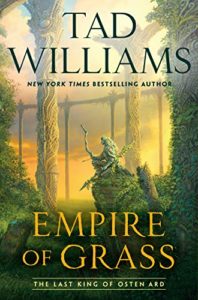 When we last left off, Prince Morgan, the grandson of Simon and Miramele, is fleeing into Aldheorte Forest fleeing the attack at his camp. At the Hayholt, Simon is struggling to hold the High Ward together as their deadly enemies, the fey-like Norns, are planning to attack and resume the war that ended thirty years ago. His wife, Queen Miramele, sells into the viper’s nest of Nabban to bring peace to two feuding power. In the grasslands, Unvar declares himself the Shan of Shan of the nomadic Thrithings and promises to drive back the foreigners encroaching on their grassland.
When we last left off, Prince Morgan, the grandson of Simon and Miramele, is fleeing into Aldheorte Forest fleeing the attack at his camp. At the Hayholt, Simon is struggling to hold the High Ward together as their deadly enemies, the fey-like Norns, are planning to attack and resume the war that ended thirty years ago. His wife, Queen Miramele, sells into the viper’s nest of Nabban to bring peace to two feuding power. In the grasslands, Unvar declares himself the Shan of Shan of the nomadic Thrithings and promises to drive back the foreigners encroaching on their grassland.